|
Aphasia Access' Podcast Series
Aphasia Access Conversations brings you the latest aphasia resources, tips, and aha moments from Life Participation professionals who deliver way more than stroke and aphasia facts. Topics include aphasia group treatment ideas, communication access strategies, plus ways for growing awareness and funds for your group aphasia therapy program. This podcast is produced by Aphasia Access.
The 2019-20 Aphasia Access Conversations Series is produced with the support from

VIEW THE LATEST PODCAST BELOW
|
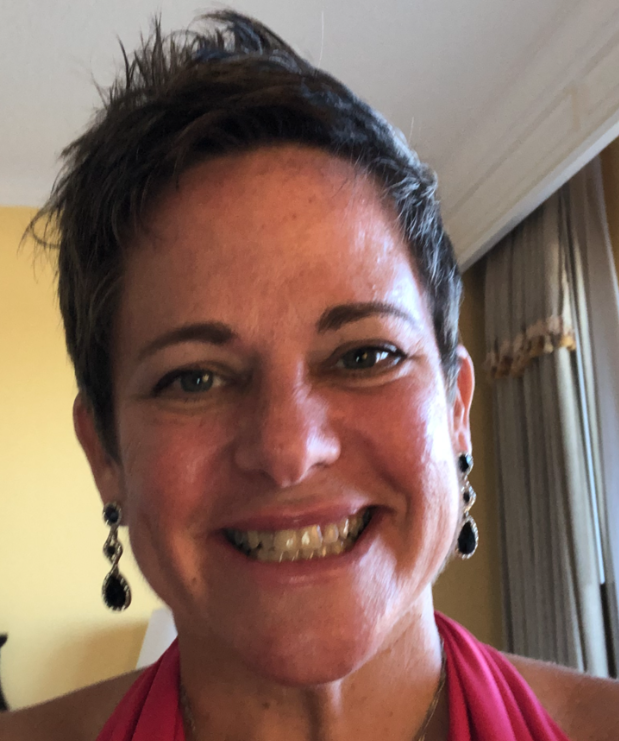
Julie Hart
College of St. Rose
|
Episode #40 - The Moving Message Walk: a conversation with Julie Hart
Jerry Hoepner, a faculty member in the department of Communication Sciences and Disorders at the University of Wisconsin – Eau Claire, speaks with today’s guest, Julie Hart, from the College of St. Rose in Albany, New York.
Julie Hart is the Director of the TBI Medicaid Program in the Lally School of Education within the College of St. Rose. She developed the Moving Message Walk, which is celebrating its 10th year, and the Moving Message Fund, along with individuals with stroke and brain injury. In her everyday work, Julie Hart truly follows LPAA principles, nothing about us without us.
In today's episode, you will hear and learn as:
- Julie shares her years of collaboration with a cohesive, person-centered and innovative department at the College of St. Rose
- After the first year, the Moving Message Fund was created to provide $2500 scholarship for therapy, technologies, and anything that will support communication of stroke and brain injury survivors
- The mission of the Moving Message Walk - celebrating people who have communication impairments, recognizing the strength they have, honoring their human nature, making people more aware of the reality of living with a communication disorder
- All of this takes place in collaboration with real-world people, including students, faculty, family, community members, and in community contexts – at the heart of LPAA principles
- and more...
Listen to the episode on iTunes
Download the show notes
|
|
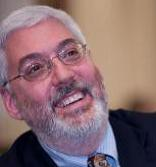
Jerome Kaplan
Boston University
|
Episode #39 - The Boston Community Aphasia Group a 30-year perspective: a conversation with Jerome Kaplan
Ellen Bernstein-Ellis, Co-director of the Aphasia Treatment Program at Cal State East Bay speaks with Jerry Kaplan about the history, structure, and future of the Boston University Aphasia Community Group.
Jerome Kaplan received his B.A. from the State University of New York at Albany and his M.A. from New York University. Now in his fiftieth year as a practicing SLP, Jerry has worked in academic, medical, rehabilitation, and research settings as well as in private practice. Founder of the Aphasia Community Group of Boston, now in its 30th year, Jerry has advocated for aphasia awareness and education through diverse and innovative programs, collaborating with noted actors, artists, filmmakers, and musicians. He has presented at the Academy of Rehabilitation Medicine, National Aphasia Association, and ASHA Conferences. He is the recipient of the Partners Health Care Community Service Award and the Aphasia Access Innovator Award.
In today’s episode you will:
- Learn about the structure and flow of a monthly three-hour aphasia community support group
- Learn about four special events that are yearly highlights on an aphasia community group's calendar
- Discover some tips for preparing guest speakers to present to aphasia community groups
- Gain insight on how commitment and collaboration are key elements to starting an aphasia community group
Listen to the episode on iTunes
Download the show notes
|
|
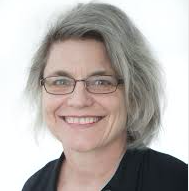
Robyn O'Halloran
La Trobe University
|
Episode #38 - Broadening the Role of the SLP in Acute Care Assessment: A Conversation with Robyn O'Halloran
During this episode, Dr. Katie Strong, Assistant Professor in the Department of Communication Sciences and Disorders at Central Michigan University talks with Robyn O’Halloran about broadening the role of the SLP in acute care assessment.
Robyn O’Halloran is a Senior Lecturer in the Discipline of Speech Pathology at La Trobe University. She worked as an SLP in community and hospital settings before undertaking a M.Phil and PhD with Professor Linda Worrall on the role of SLP in the acute hospital setting. Robyn is the lead author of the Inpatient Functional Communication Interview: Screening, Assessment and Intervention, which will be published by Plural in November this year.
In this episode you will:
- learn the importance of supporting your patients participate in their health care while they are in the hospital and how that might impact their overall health outcomes.
- be challenged to imagine how your role as an SLP in acute care can broaden by addressing the barriers to communication in the hospital environment.
- hear about a new tool, the Inpatient Functional Communication Interview (IFCI) for assessment in acute care.
- listen to questions posed from SLPs working in acute care about IFCI
|
|
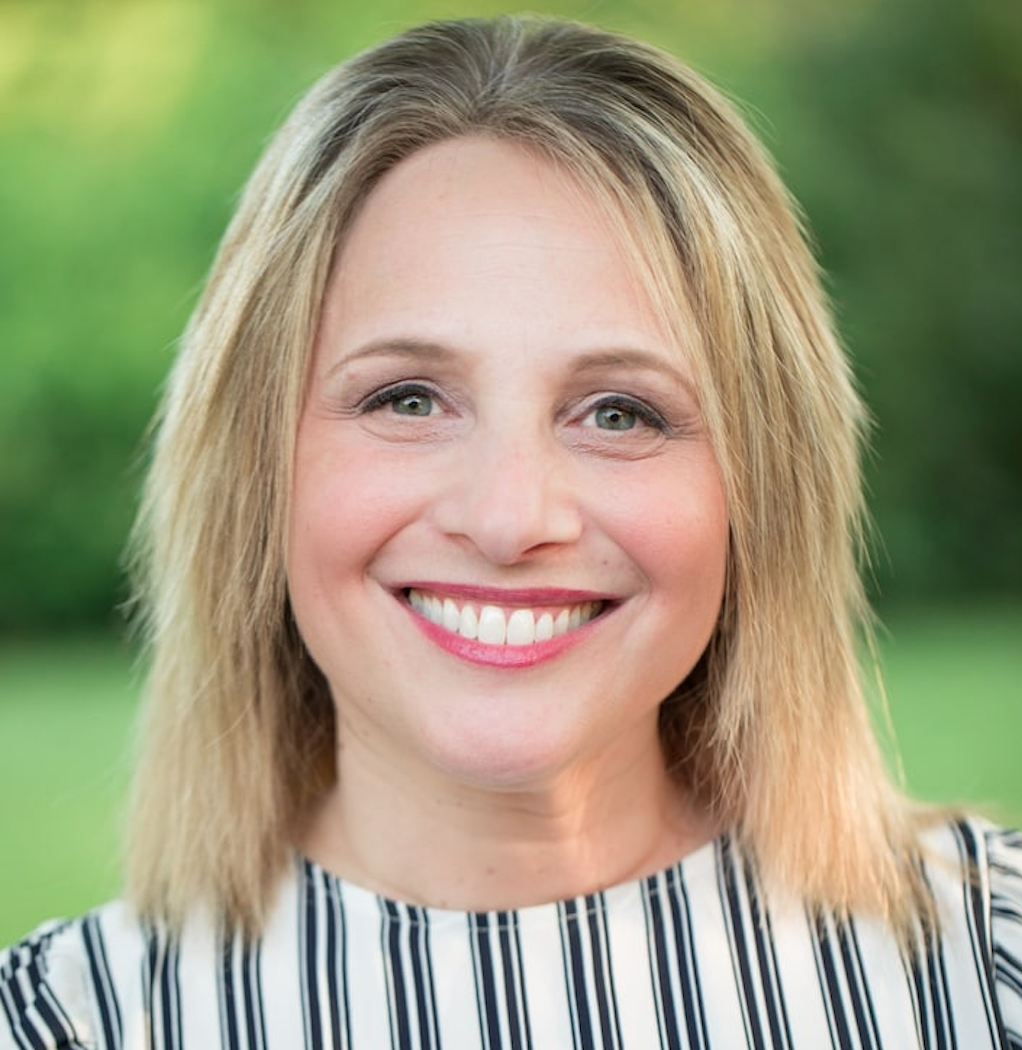
Janice Dittelman
Adler Aphasia Center
|
Episode #37: Stewardship and Best Business Practices for aphasia groups with Janice Dittelman
In this episode, Janet Patterson speaks with Janice Dittelman, Technology Coach at the Adler Aphasia Center in New Jersey.
Listening to this episode, you will:
- Hear how incorporating technology, in particular, mobile technology, can expand the experiences and connectedness of persons with aphasia, their family members, and individuals in the community,
- Learn tips on managing expectations for incorporating mobile technology into an aphasia group and encouraging group members to use mobile technology beyond the aphasia group activity,
- Learn what aphasia and fantasy football have in common.
Listen to the episode on iTunes
Download the show notes
|
|
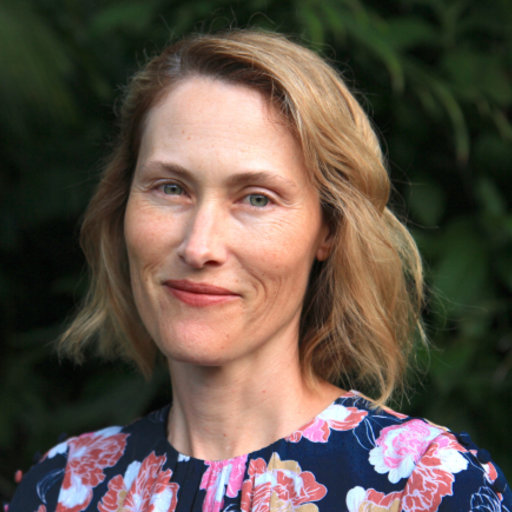
Dr. Ronelle Hewetson
Griffith University
|
Episode #36: Addressing a Social Intervention Framework for Persons with Right Hemisphere Damage with Ronelle Hewetson
Jerry Hoepner, a faculty member at the University of Wisconsin – Eau Claire, speaks with Ronelle Hewetson about the social intervention framework and parallels to the LPAA framework for individuals with right hemisphere damage. Ronelle addresses the gap in knowledge about a social intervention framework so evident in clinical contexts.
Dr. Hewetson has examined social participation following right hemisphere stroke and has great insights into the application of the LPAA framework among persons with right hemisphere damage.
In today’s episode you will:
- Learn about the impact of right hemisphere damage on social communication, including returning to work roles and returning to relationships.
- Learn about the role of speech-language pathologists in addressing the social consequences of right hemisphere damage after right hemisphere damage.
- Learn about how proxy input gives a better idea of the social consequences after right hemisphere damage, given reduced awareness of change and the underestimation of the magnitude of social cognition impairments.
- Learn about possible predictors to changes or declines in social networks (network and relationship maintenance) among persons with right hemisphere damage.
Listen to the episode on iTunes
Download the show notes
|
|
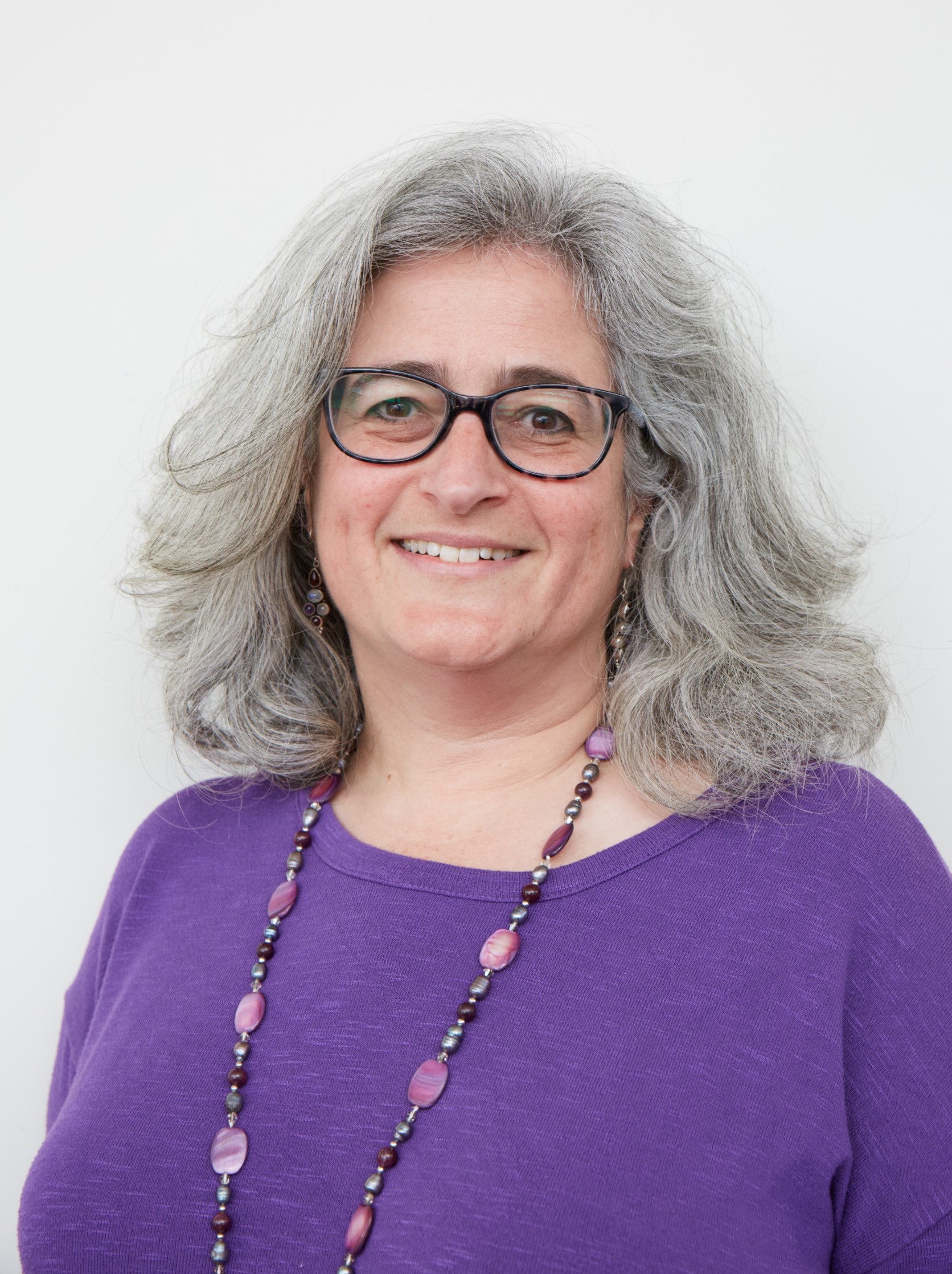
Deborah Hersh, Ph.D.
Edith Cowan University
|
Episode #35: Therapy in Transit using LPAA in Acute and Sub-Acute Settings with Dr. Deborah Hersh
Deborah Hersh, Ph.D., is an Associate Professor in Speech Pathology at Edith Cowan University in Perth, Western Australia. She is a Fellow of Speech Pathology Australia and Deputy Chair of the Australian Aphasia Association. Deborah is interested in how people with aphasia experience rehabilitation and how SLPs can make their recovery journey more person-centered, inclusive and successful.
During this episode, Dr. Katie Strong, Assistant Professor in the Department of Communication Sciences and Disorders at Central Michigan University talks with Dr. Hersh about Meeting in the Middle: Augmenting Person-Centeredness in Acute and Sub-Acute Post-stroke Aphasia. Material from today’s episode was first presented at the 2018 ASHA Convention in Boston, MA.
In today’s episode you will:
- Hear the analogy of ‘therapy in transit’ as applied to acute and subacute aphasia care and how LPAA applies to participation in hospital settings
- Learn how therapeutic assessment differs from traditional assessment
- Expand your collaborative skills through the SMARTER goal setting framework
- Learn how to approach discharge in a collaborative manner
Special Thanks to these Aphasia Access Members and organizations for underwriting this episode:
- Wendy Greenspan
- Brooks Aphasia Center (Jacksonville, Florida)
Listen to the episode on iTunes
Download the show notes
|
|
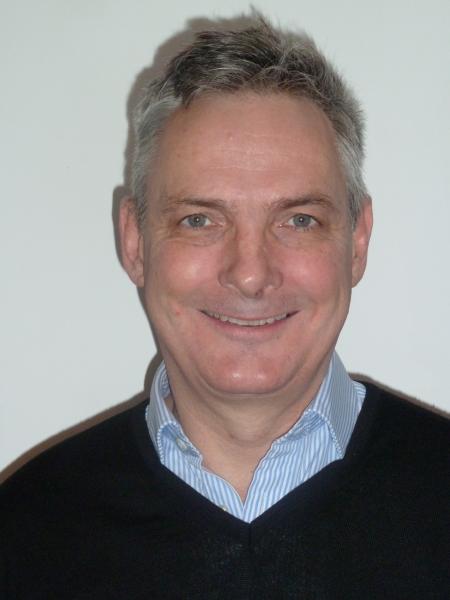
Ian Kneebone
University of
Technology - Sydney
|
Episode #34: Addressing the mental health consequences of aphasia in an
LPAA framework with Ian Kneebone
Jerry Hoepner, a faculty member at the University of Wisconsin – Eau Claire, speaks with Ian Kneebone about our roles in addressing mental health concerns among individuals with aphasia.
Ian Kneebone is head of discipline within the discipline of Clinical Psychology in the Graduate School of Health at the University of Technology – Sydney. Professor Kneebone has made many contributions to clinical psychology and care of older people, specifically with those who experience depression and anxiety after stroke and other neurogenic diseases, including aphasia. In recent years, part of his work has included collaborations with several speech-language pathology researchers in addressing psychosocial consequences and interventions for persons with aphasia
In today’s episode you will:
- Learn about common mental health concerns among individuals with aphasia.
- Learn about the role of speech-language pathologists and other professionals in the stepped model of care.
- Learn about Ian Kneebone’s past and current collaborations with researchers examining mental health and aphasia (e.g., Aphasia Center for Research Excellence, the ASK project).
- Learn how increasing participation in personally relevant and meaningful activities can have positive effects on mood.
Special Thanks to these Aphasia Access Members and organizations for underwriting this episode:
- Ruth Fink
- Nina Simmons-Mackie
Listen to the episode on iTunes
Download the show notes
*Note, due to occasional connectivity issues in this overseas conversation, there were a few sound problems. We addressed some of the more major sound artifacts by having Ian record a new voice over. We hope this does not disrupt the flow too much but helps to retain key information in the conversation. Thank you for your understanding.
|
|
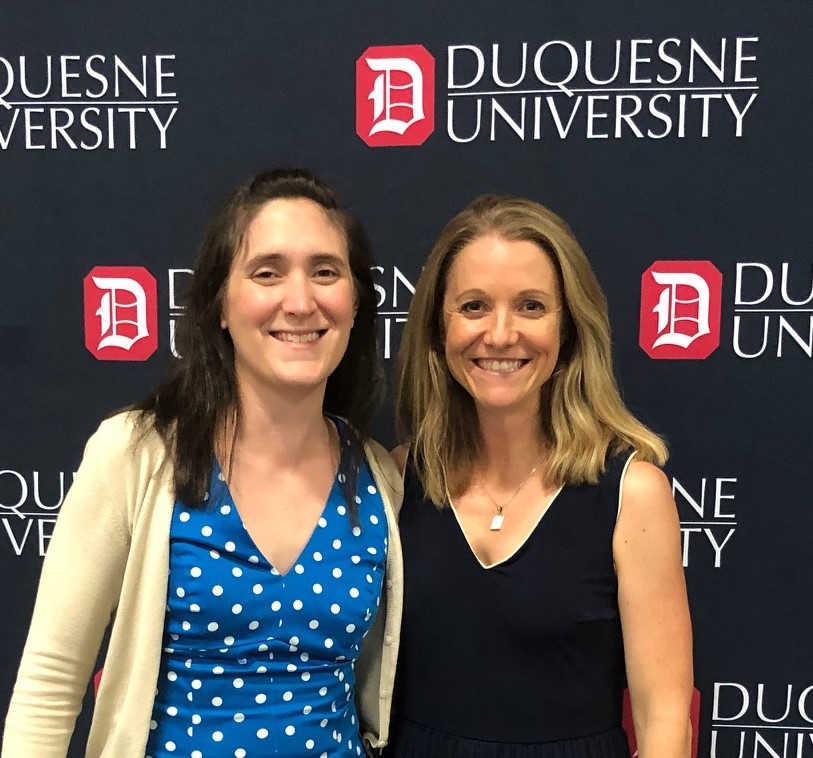
Elena Donoso Brown, Ph.D.
Duquesne University
Sarah Wallace
Ph.D., CCC-SLP
Duquesne University
|
Episode 33: Addressing Participation Gaps in Research and Clinical Environments: A Conversation with Sarah Wallace & Elena Donoso Brown
In this episode, Dr. Katie Strong (Assistant Professor in the Department of Communication Sciences & Disorders at Central Michigan University) is talking with Dr. Sarah Wallace and Dr. Elena Donoso Brown about their work on participation gaps in research and clinical environments.
Sarah E. Wallace PhD, CCC-SLP is an Associate Professor and Program Director for the Adult Language and Cognition clinic in the Speech-Language Pathology Department at Duquesne University in Pittsburgh, Pennsylvania. Dr. Wallace also directs the Communication and Cognition Lab. She is a Tavistock Trust for Aphasia Distinguished Scholar in the United States.
Elena Donoso Brown PhD, OTR/L is an Assistant Professor in the Occupational Therapy Department at Duquesne University. Dr. Donoso Brown’s previous clinical experience was in-patient rehabilitation for persons after traumatic brain injury and stroke. At Duquesne University, she teaches undergraduate and graduate courses in evaluation, qualitative research methods and program development.
In this episode you will:
1. expand your viewpoint on AAC being solely for supporting output
2. get tips on how to support people with aphasia in increasing independence in reading
3. hear about an interdisciplinary project with occupational therapy to support people with aphasia in participating in-home programs
4. learn a few tips on interprofessional collaboration, including involving students in research projects
Special Thanks to these Aphasia Access Members and organizations for underwriting this episode:
- Wendy Greenspan
- Melinda Corwin
- SCALE at the League
Listen to the episode on iTunes
Download the show notes
|
|
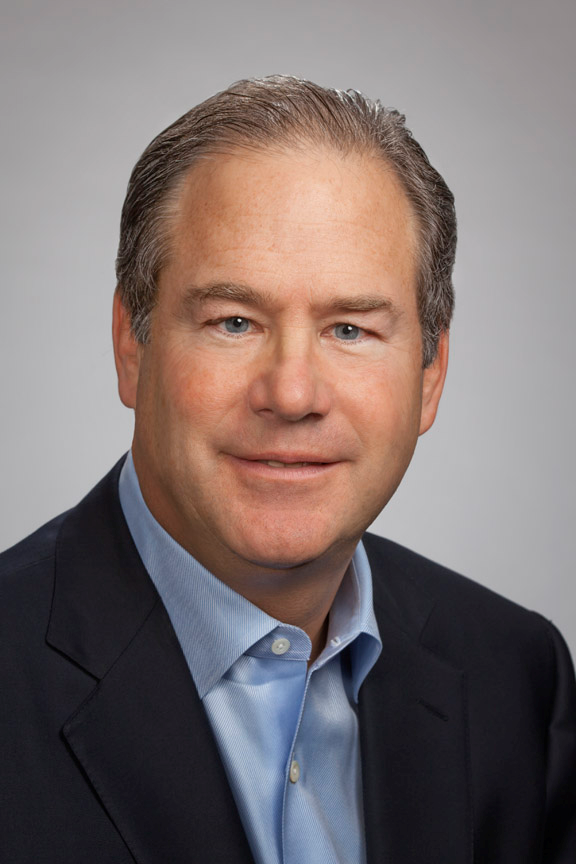
Ken Bado
Chairman of the Executive Board
Voices of Hope for Aphasia
|
Episode 32: In Conversation with Ken Bado
Janet Patterson, Chief of the Audiology & Speech-Language Pathology Service at VA Northern California, speaks with Ken Bado about the power of a passionate and dedicated executive board for a community aphasia group.
Ken Bado is Chairman of the Executive Board of Voices of Hope for Aphasia in St. Petersburg, Florida. Ken, who is based in Dallas Texas, has been transforming IT companies for the last 30 years. In addition to being CEO of GMB Consulting LLC, he sits on boards of high growth software companies and various non-profits, including Voices of Hope for Aphasia.
In today's episode you will learn:
- How having clearly stated mission and intent statements contribute to successful operation and stewardship of a community aphasia group
- About the most important qualifications that members of an executive board should demonstrate
- The value of applying solid business practices to aphasia group operations and activities to assure decisions align with the mission of the group.
Special Thanks to these Aphasia Access Members and organizations for underwriting this episode:
- Ruth Fink
- Karen Tucker
- Nina Simmons-Mackie
Listen to the episode on iTunes
Download the show notes
|
|
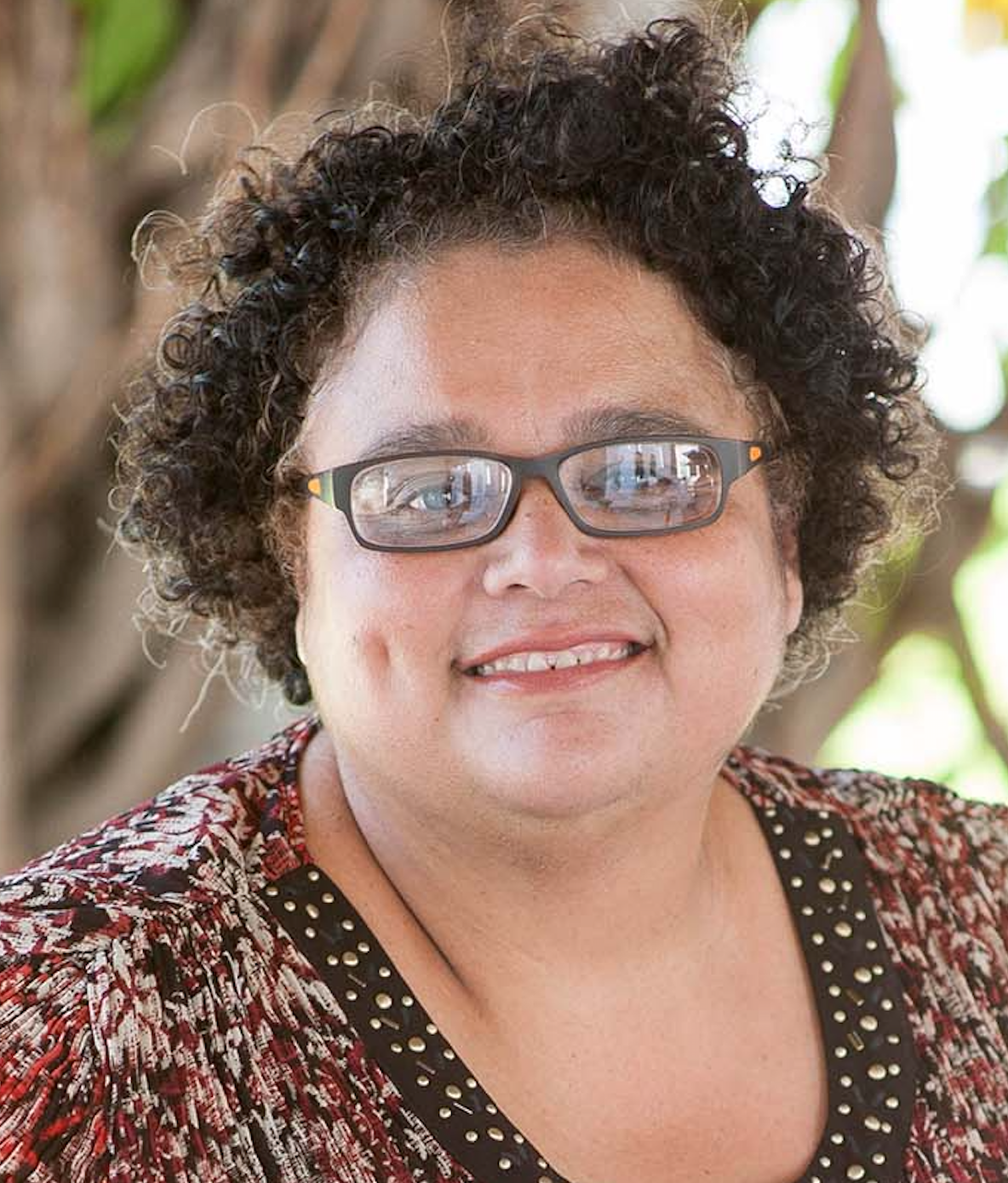
Maria L. Muñoz, Ph.D, CCC-SLP
Professor
University at Redlands
|
Episode 31: Balancing Stressors with Solutions: Integrating a Culturally Responsive Practice and LPAA values, a Conversation with Maria Munoz
Dr. Katie Strong (Assistant Professor at Central Michigan University Department of Communication Sciences & Disorders) presents another segment on “A-ha!” Moments in Aphasia Care as she speaks with Dr. Maria Muñoz about providing culturally responsive aphasia care.
Maria L. Muñoz, Ph.D, CCC-SLP is a Professor at the University of Redlands. She received her doctorate from the University of Texas as a participant in the Multicultural Leadership Training Program and completed a post-doctoral fellowship in aphasia at the University of Arizona. She conducts research, teaches, and publishes in the areas of treatment outcomes and aphasia, and the manifestation of aphasia in Spanish/English bilinguals.
In this episode you will:
- Hear a story that provided an aha moment in making treatment culturally relevant.
- Learn about how cultural adaptation applies to LPAA philosophy and challenges clinicians to see a different world view.
- Discover some ‘lessons learned’ on facilitating a bilingual aphasia support groups.
- Learn a few tips in working with clients who are bilingual and have aphasia.
Special Thanks to these Aphasia Access Members and organizations for underwriting this episode:
- The SCALE Center for Aphasia Care
- Wendy Greenspan
- Katarina Haley
- Karen Tucker
Listen to the episode on iTunes
Download the show notes
|
|
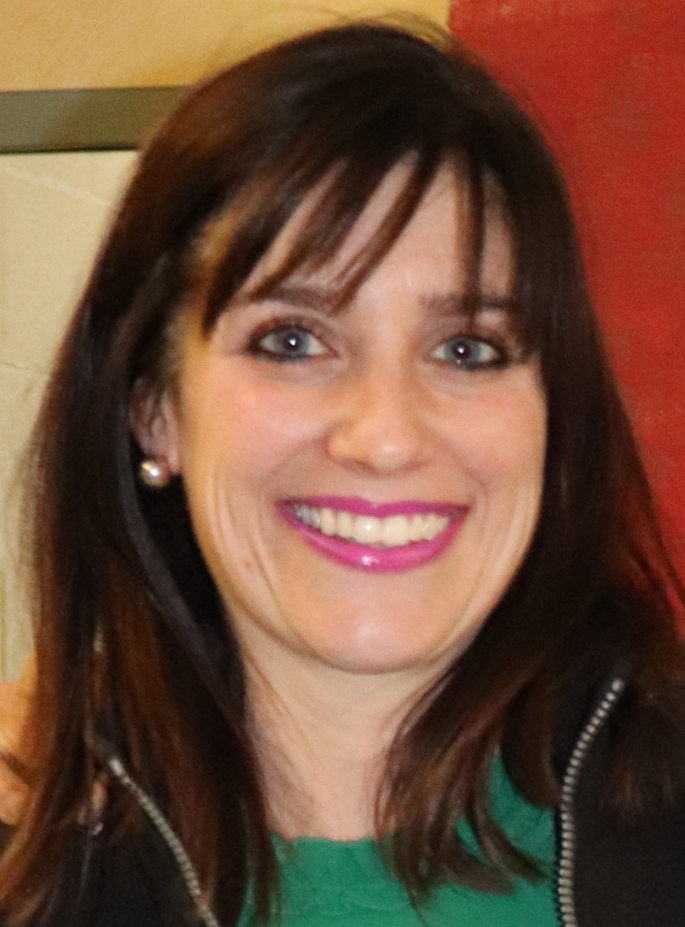
Melissa Capo,
Clinical Supervisor,
College of St. Rose
|
Episode Thirty: Project Based Interventions in LPAA with Melissa Capo
Jerry Hoepner, a faculty member at the University of Wisconsin – Eau Claire, speaks with Melissa Capo about PEP Talks and project-based interventions.
Melissa Capo is the developer of PEPtalks and clinical supervisor at the College of St. Rose. Melissa was fortunate to be a long-time colleague of Dr. Mark Ylvisaker, a profound influence on so much of the work we do with adults and adolescents with acquired neurogenic disorders like traumatic brain injury and aphasia. While not explicitly linked to the LPAA approach, his tenets of authentic, person-centered interventions where everyday partners and persons with aphasia or TBI are viewed as collaborators and experts is central to an LPAA approach. Building upon her collaborations with Mark, Melissa has been an innovative advocate for project-based interventions, publishing sentinel work in that area with Drs. Feeney and Ylvisaker in 2007.
In today’s episode you will:
- Learn about applications of project-based interventions for persons with aphasia and related disorders.
- Examine the framework for project-based interventions.
- Learn about PEP Talks, positive-educational-peer reviewed videos for persons with brain injury by persons with brain injury.
- Gain insight into the importance of supporting individuals to identify and carry out projects to the fullest extent possible.
Special Thanks to these Aphasia Access Members and organizations for underwriting this episode:
- The SCALE Center for Aphasia Care
- Wendy Greenspan
- Katarina Haley
- Karen Tucker
Listen to the episode on iTunes
Download the show notes
|
|
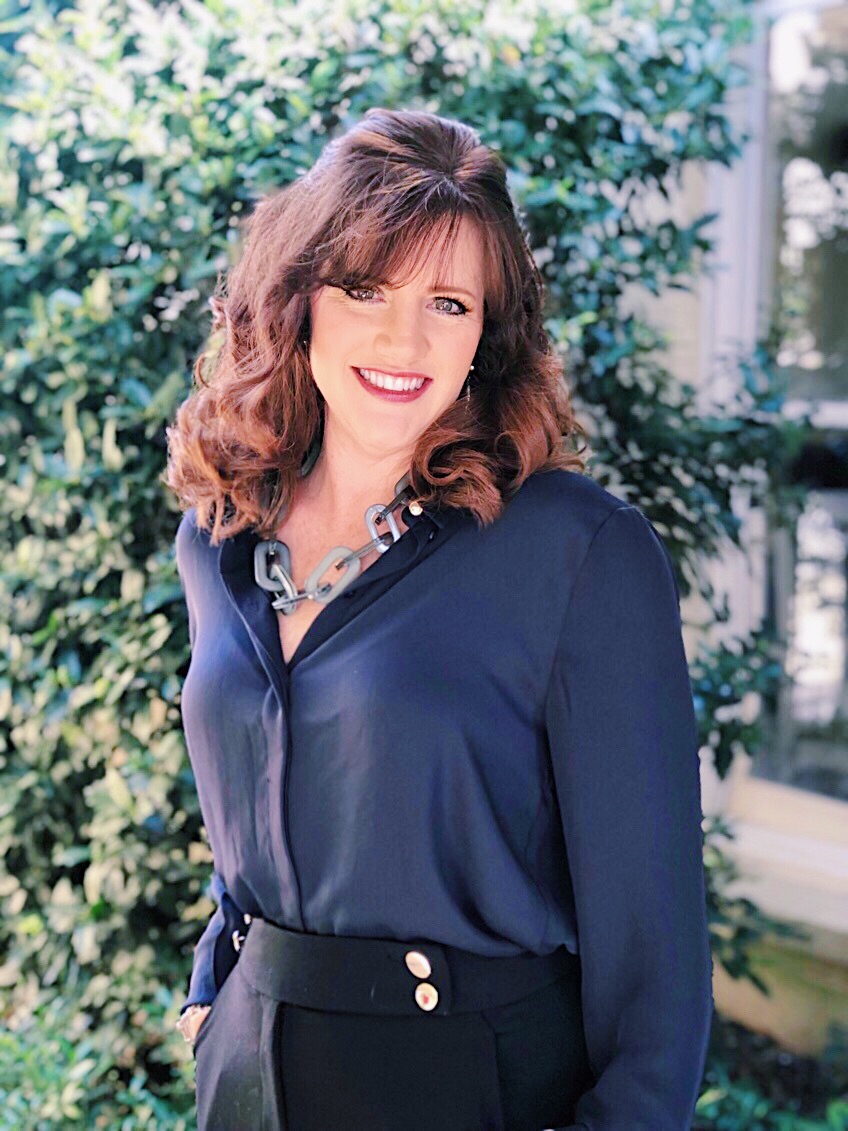
Mary Ray-Allen, MEd,
Clinical Director,
University of Alabama
|
Episode Twenty-nine: Cups of Confidence: Bama Perks Coffee Shop
A Conversation with Mary Ray-Allen
Today, Katie Strong (Assistant Professor at Central Michigan University) speaks with Mary Ray-Allen about the Bama Perks Coffee Shop at the University of Alabama Speech and Hearing Center.
Mary Ray-Allen is the Clinical Director at The University of Alabama Speech and Hearing Center. She is the project director for Bama Perks, a simulated coffee shop that is housed within The UA Speech and Hearing Center that offers a unique social environment for individuals with aphasia to practice and enhance their communication skills. Bama Perks was featured in the March '17 ASHA Leader. She is a member of Alabama Clinical Educators (ACE) and is a nationally certified Speech Language Pathologist and member of ASHA.
In this episode you will:
- Learn how a cup of coffee can lead to confidence in communicating for people with aphasia
- Learn about how Bama Perks program facilitates the opportunity to socialize in a café style environment
- Learn a few tips about how to develop this type of program in your work environment, including student training opportunities
Special Thanks to these Aphasia Access Members and organizations for underwriting this episode:
- Brooks Rehabilitation Aphasia Center
- Ruth Fink
- Nina Simmons-Mackie
- Karen Tucker
Listen to the episode on iTunes
Download the show notes
|
|
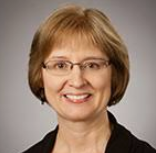
Melinda Corwin, Ph.D., CCC-SLP
Texas Tech University
|
Episode Twenty-eight: Aphasia Celebrations: Engaging Group Members in the Planning. A Conversation With Melinda Corwin
Ellen Bernstein-Ellis, director of the Aphasia Treatment Program (ATP) at California State University, East Bay, speaks with Melinda Corwin about ways to engage aphasia group members in planning a special event. Melinda Corwin is a professor and clinical supervisor at the Texas Tech University Health Sciences Center Department of Speech, Language, and Hearing Sciences. She directs the Stroke And Aphasia Recovery Program (STAR) and is a member of Aphasia Access and its Board of Directors.
In this episode you will:
- Learn about five different areas for involving group members as partners in event planning
- Hear about three kinds of awards that may enrich your event program
- Consider the dual benefits of member-guided celebrations: Building ownership in a fun event for people with aphasia and their guests and promoting aphasia awareness to the broader community
Special Thanks to these Aphasia Access Members and organizations for underwriting this episode:
- Ruth Fink
- Nina Simmons-Mackie
- Karen Tucker
Listen to the episode on iTunes
Download the show notes
|
|
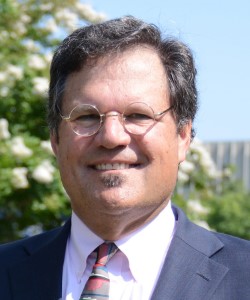
David Greenberg,
MBA, BSc
CEO & President
Baltimore League
for People with Disabilities
|
Episode Twenty-seven: Aphasia Access Conversation: David Greenberg
David Greenberg, the president and CEO of the League for People with Disabilities in Baltimore, Maryland. Mr. Greenberg has an MBA, a BSc, and extensive experience in healthcare and working with people with disabilities.
In this episode you will:
- Learn more about the League and its partnerships with SCALE and Aphasia Access.
- Gain a better understanding of the types of programs and classes available to individuals with disabilities.
- Find advice on the best ways to create a partnership with organizations similar to the League.
Special Thanks to these Aphasia Access Members and organizations for underwriting this episode:
- Brooks Aphasia Center (Jacksonville, Florida)
- Nina Simmons-Mackie
- Ruth Fink
- Karen Tucker
Listen to the episode on iTunes
Download the show notes
|
|
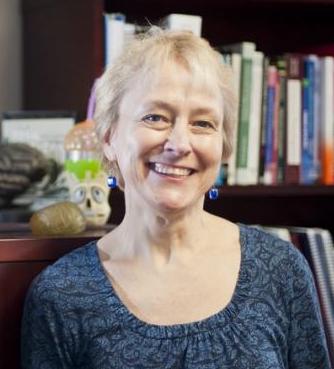
Brooke Hallowell, PhD,
CCC-SLP
Springfield College
|
Episode Twenty-six: Aphasia Access Conversation: Dr. Brooke Hallowell
Dr. Brooke Hallowell is dean of health sciences and rehabilitation studies at Springfield College and internationally known for her work in interdisciplinary engagement, service learning, university community partnerships and transnational collaboration in research and service. Professor Hallowell is also the international coordinator for the Aging Disability and Access to Care Project.
In today's episode you will:
- Learn about the Life Participation Approach to Aphasia in underserved countries such as Malaysia, Philippines, India, and China
- Be exposed to the ways different cultures and traditions view Aphasia as a challenge that is not faced but instead accepted
- Understand how other cultural perspectives affect patients' access to care
|
|
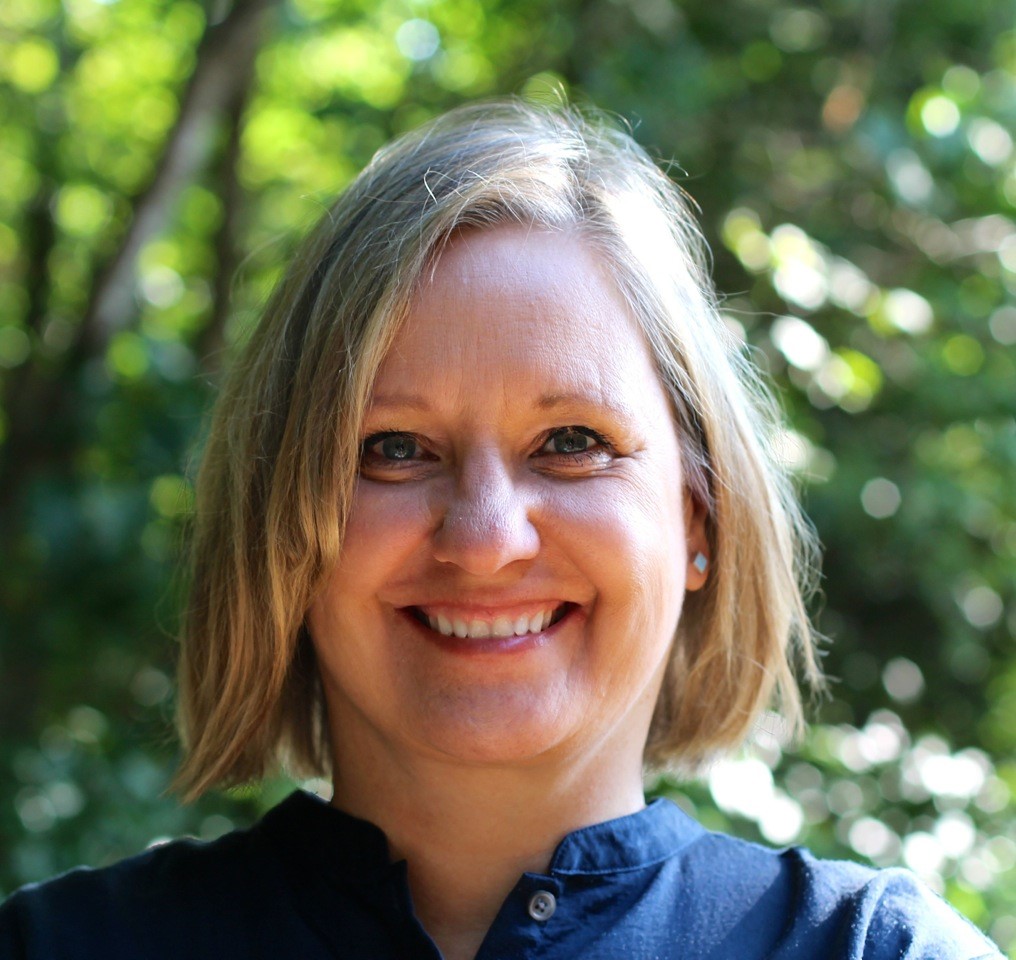
Katarina Haley, PhD,
CCC-SLP
UNC Chapel Hill
|
Episode Twenty-five: Aphasia Access Conversation: Katarina Haley
Katie Strong interviews Dr. Katarina Haley about Life Interests and Values Cards.
Dr. Katarina Haley is an Associate Professor of Speech and Hearing Sciences, Department of Allied Health Sciences at the University of North Carolina School of Medicine in Chapel Hill, North Carolina. Dr. Haley has over 30 years of experience working with neurologic communication disorders and has invested much time and effort into the development of Life Interests and Values (LIV) Cards, which are part of the larger LIV project.
In today's episode you will:
- Learn more about LIV Cards and their impact on patient care
- Hear about how LIV Cards provide patients with autonomy
- Discover the role LIV Cards can play in an LPAA model
Special Thanks to these Aphasia Access Members and organizations for underwriting this episode:
- SCALE at The League for People with Disabilities, Baltimore, Maryland
- Ruth Fink
Listen to the episode on iTunes
Download the show notes
|
|

Melinda Corwin, Ph.D., CCC-SLP
Texas Tech University
|
Episode Twenty-Four: Aphasia Choirs, A Conversation with Dr. Melinda Corwin
Ellen Bernstein-Ellis (California State University, East Bay) speaks with Melinda Corwin about aphasia choirs.
Melinda Corwin is a professor and clinical supervisor at the Texas Tech University Health Sciences Center Department of Speech, Language, and Hearing Sciences. Her research and clinical interests include adult neurogenic communication disorders. She directs the Stroke And Aphasia Recovery Program (STAR) and is an affiliate of Aphasia Access.
In today’s episode you will:
-
Compare and contrast two models for aphasia choirs--one embedded within a summer arts program and one embedded within an academic year day program.
-
Learn about the value in providing IwA the opportunity to transition from music listeners to active music makers.
-
Gain insight into the challenges and some potential options for capturing outcomes for choir participation
-
Discover some tips for selecting music and the challenges of integrating new members into an ongoing choir
Listen to the episode on iTunes
Download the show notes
|
|
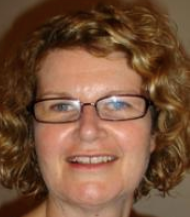
Linda Worrall, Ph.D.
University of Queensland
|
Episode Twenty-Three: Relationship-Centered Care to Implementation Science - A Conversation with Dr. Linda Worrall
Katie Strong (Assistant Professor at Central Michigan University) presents an episode of “A-ha!” Moments in Aphasia Care as she speaks with Linda Worrall about relationship-centered care, psychosocial health, and implementation science in aphasia.
Professor Linda Worrall is a Professor of Speech Pathology, Co-Director of the Communication Disability Centre and Postgraduate Coordinator at The University of Queensland, Brisbane, Australia. She completed her undergraduate degree in speech pathology at The University of Queensland but then completed her Ph.D. in the Stroke Research Unit in Nottingham, UK. She has practiced as a speech pathologist both in Australia and the UK and founded the Australian Aphasia Association in 2000. She has published over 200 peer-reviewed journal articles, 26 book chapters, and 6 books; graduated 27 Ph.D. candidates and has had continuous nationally competitive research funding during her academic career. From 2009-2014, she led the NHMRC funded Australia-wide Centre for Clinical Research Excellence in Aphasia Rehabilitation.
In this episode you will:
- Learn the complexity of effectiveness trials and how research and clinical practice go together;
- Understand the importance of relationship-centered care and the power of authentic relationships;
- Learn the origins of the living successfully with aphasia movement;
- Appreciate the negative impact mood has on aphasia outcomes and the important role speech-language pathologists have in preventing depression.
Listen to the episode on iTunes
Download the show notes
|
|
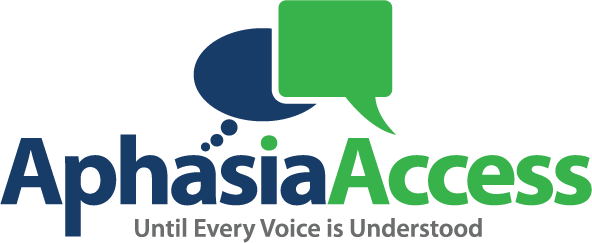
Dominique Herrington,
Director of the Aphasia Group of Middle Tennessee
|
Episode Twenty-Two: A Model for Engaging People with Aphasia in the Community with Dominique Herrington, Director of the Aphasia Group of Middle Tennessee
In this episode, Janet Patterson (Chief of the Audiology & Speech-Language Pathology Service at the VA Northern California Health Care System) speaks with Dominique Herrington, Director of the Aphasia Group of Middle Tennessee, which is housed in the Vanderbilt Bill Wilkerson Pi Beta Phi Rehabilitation Institute at Vanderbilt University in Nashville Tennessee. They dive deep into the Aphasia Group of Middle Tennessee with the hopes that it can both inform and inspire others.
Dominique received her Masters of Science in Speech-Language Pathology from the University of Montevallo and is a certified and licensed Speech-Language Pathologist. She is a Senior Clinical Education Associate for Vanderbilt Bill Wilkerson Department of Hearing and Speech Sciences and Vanderbilt University School of Medicine, serving as the Assistant Manager of Pi Beta Phi Rehabilitation Institute as well as the Program Coordinator for the Aphasia Group and Aphasia Program of Middle Tennessee.
In today’s episode you will:
- Hear about persons with aphasia who are so dedicated to the aphasia group that they travel long distances on public transportation;
- Discover how the Aphasia Group of Middle Tennessee evolved from a focus on impairment-based treatment to becoming a learning lab for students and persons with aphasia;
- Learn about the Mile Marker Project.
Listen to the episode on iTunes
Download the show notes
|
|
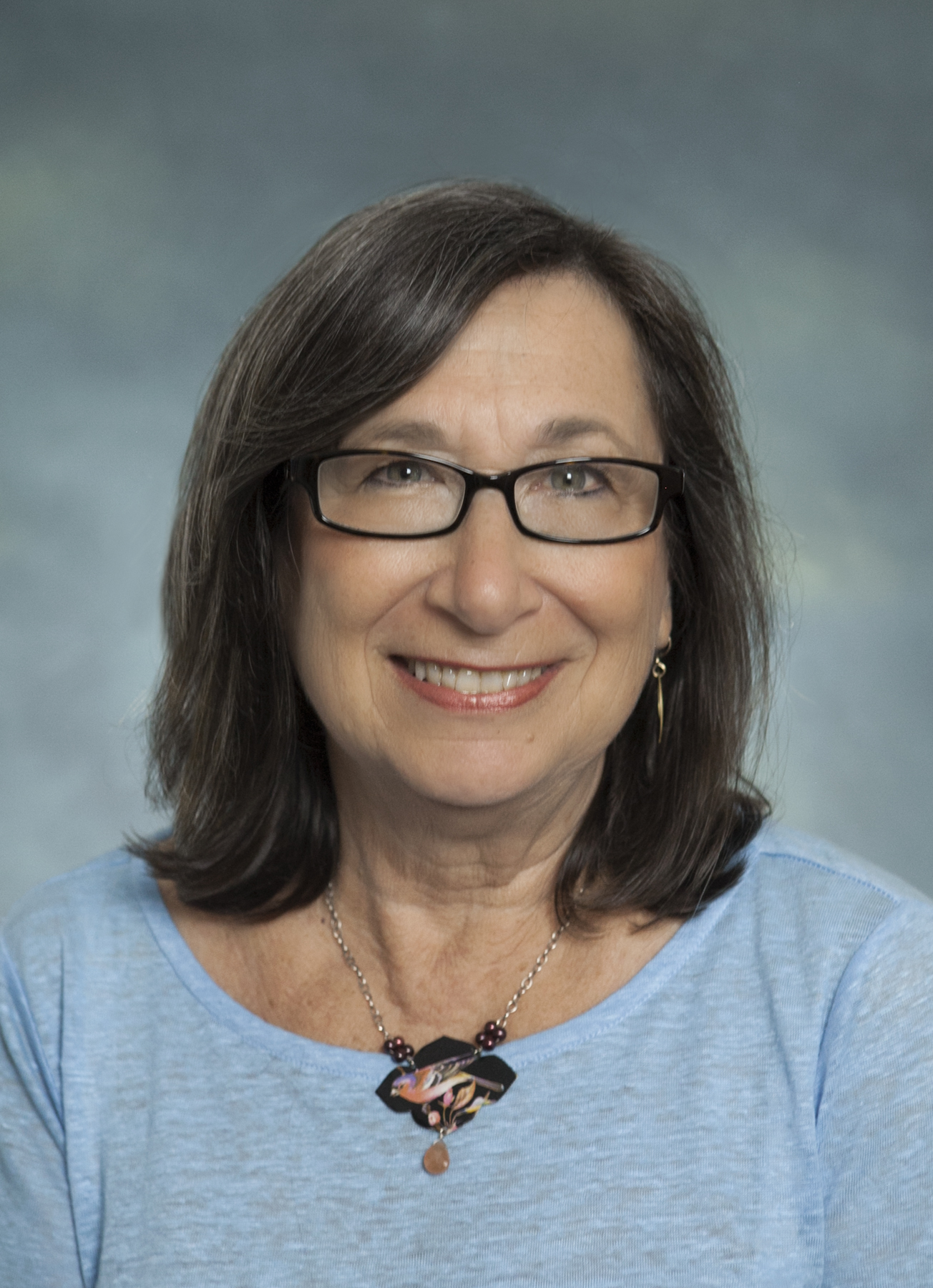
Ruth Fink, MA, CCC-SLP
Aphasia Access President
(2017-2019)
|
Episode Twenty-One: The Future of Aphasia Care and how Aphasia Access is Leading the Way, A Conversion with Ruth Fink, President of Aphasia Access
In an episode focused on “Insights and ‘Aha Moments’ about Aphasia Care”. Dr. Katie Strong (Central Michigan University) speaks with Aphasia Access President Ruth Fink about her career and the vision and initiatives of Aphasia Access.
Ruth Fink, MA, CCC-SLP is a co-founder and retired Clinical Director of MossRehab Aphasia Center, and Scientist Emeritus of Moss Rehabilitation Research Institute. A founding member of Aphasia Access, she currently serves as Board President. After 20 years as a clinical SLP, she joined the Moss Rehabilitation Research Institute as a Research Associate where she served as Co-PI and Project Director on treatment research in the areas of sentence processing, word retrieval, and computer-assisted applications in aphasia rehabilitation.
In today’s episode you will:
- Hear Ruth share about how her career followed the course that a client might follow and about how magic happens in aphasia groups
- Learn three tips for how to transition from a clinician to a clinician researcher
- Hear about Aphasia Access’ vision to advance lifelong communication access for people with aphasia
- Learn how you can become a volunteer with Aphasia Access
Listen to the episode on iTunes
Download the show notes
|
|
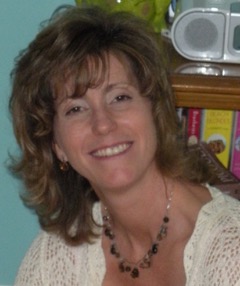
Denise McCall, MA-CCC
SCALE at the League
|
Episode Twenty - Merging an LPAA Model & Medical Model for Successful Aphasia Treatment
Janet Patterson (V.A. Northern California Health Care System) speaks with Denise McCall, the Program Director of SCALE at The League for People with Disabilities in Baltimore, Maryland, about their unique organizational structure.
Denise McCall co-founded SCALE back in 2008 and, in 2014, it merged with The League and has turned into a specialty program there as part of their medical day program. Denise has over 30 years of experience as a clinician and a researcher. She has served persons with aphasia across the continuum of care and has contributed to international research and grant programs to improve aphasia care. Denise is a certified speech language pathologist and is one of the founders of Aphasia Access - currently serving as an active member on its Development Committee. She received a B.S. in Communication Disorders and in Psychology from Towson University and earned a master's degree from George Washington University.
In today's episode, you will:
- Learn about SCALE’s history and the unique manner in which it combines an LPAA model and a medical model for serving people with aphasia;
- Understand how SCALE was transformed through their search for new funding opportunities;
- Hear about SCALE “Accounts Meetings” and “SCALE Tenets”.
|
|
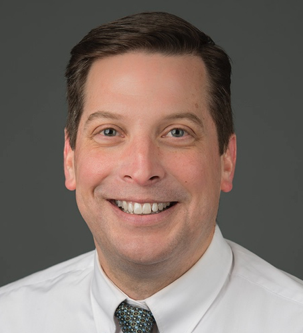
Tom Sather, PhD/CCC-SLP
University of Wisconsin - Eau Claire
|
Episode Nineteen - The Intersection of Flow and the LPAA Framework
Dr. Jerry Hoepner (University of Wisconsin Eau-Claire) speaks with Dr. Tom Sather about the concept of flow and how it can be applied to the LPAA framework for people with aphasia.
Tom Sather is an assistant professor in the Communication Sciences and Disorders Department at the University of Wisconsin Eau-Claire. He continues to work clinically as a speech language pathologist with adults and families of those with neurogenic, cognitive, communication, and swallowing difficulties in the critical care, acute care, and outpatient settings at the Mayo Clinic Health Systems in Eau Claire, Wisconsin. He earned his Ph.D. at Western Michigan University's Interdisciplinary Health Sciences Ph.D. program studying the concept of flow and aphasia.
In today’s episode, you will:
- Find out what flow is
- Learn how flow applies to people living with aphasia
- Learn about the interaction between environment and flow experience
- Hear about the experience sampling method and its applications to the study of aphasia and the life participation approach
Listen to the episode on iTunes
Download the show notes
|
|
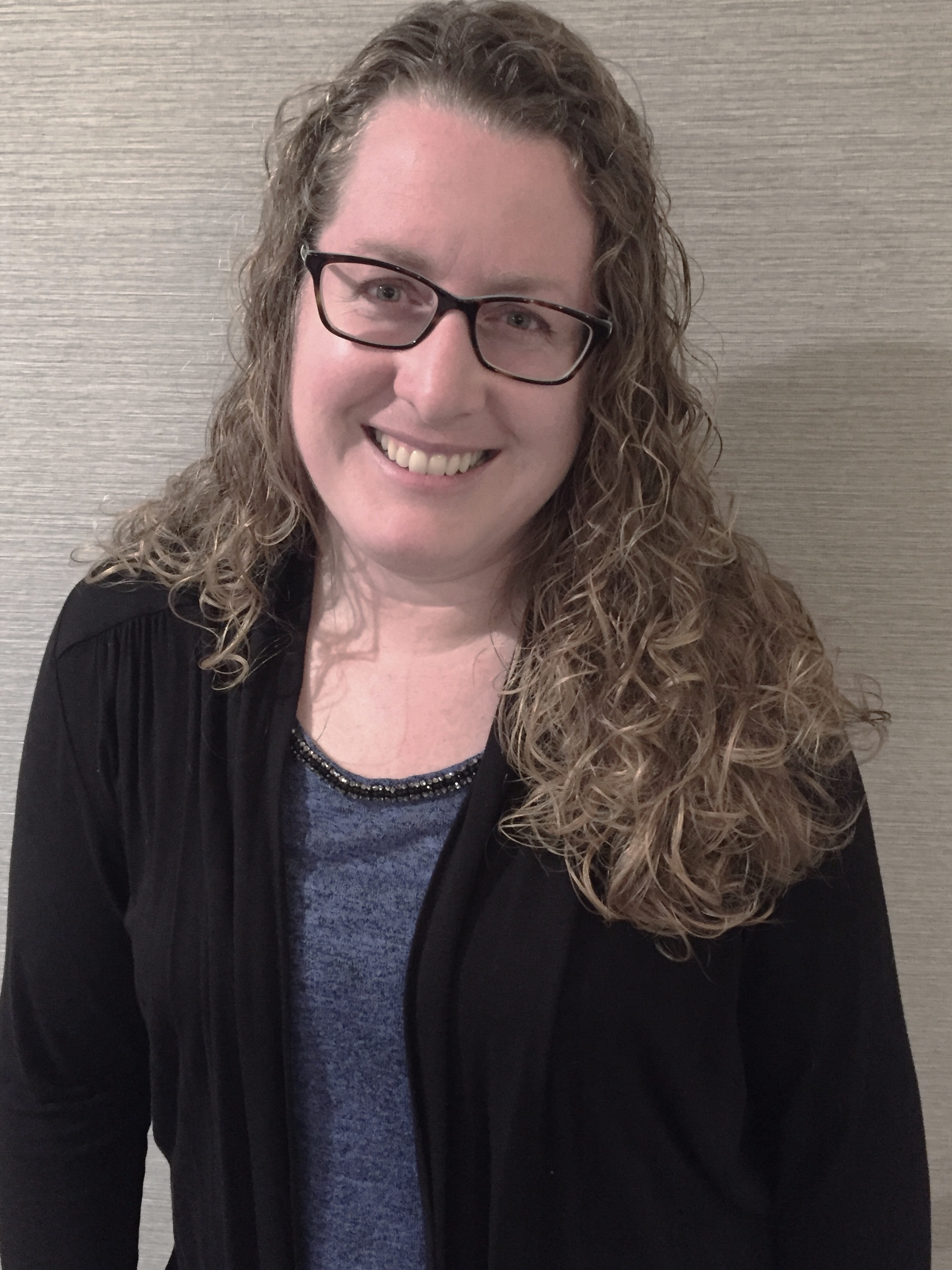
Gretchen Szabo, M.A., CCC-SLP
Adler Aphasia Center
|
Episode Eighteen - Great Ideas in Aphasia Care Programming: A Conversation with Gretchen Szabo
Ellen Bernstein-Ellis (California State University, East Bay) speaks with Gretchen Szabo about the power of scripting in the treatment of aphasia.
Gretchen Szabo, M.A., CCC-SLP is a research speech-language pathologist and Aphasia Communication Group Coordinator at the Adler Aphasia Center in New Jersey. She also serves as an adjunct professor at Montclair State University. She has over 10 years of experience working with individuals with aphasia. Her research and clinical focus is on functional and community based treatment approaches to aphasia and on awareness and advocacy initiatives for aphasia.
In today’s episode, you will:
- Find out the connection between LPAA values and using scripting as a therapy approach;
- Understand personal, impairment, and environmental factors that may contribute to successful vs. unsuccessful script implementation;
- Hear a story sharing how scripting impacted the participation of a client with severe aphasia.
Listen to the episode on iTunes
Download the show notes
|
|

Dr. Janet Whiteside
|
Episode Seventeen - Insights and "Aha!" Moments About Aphasia Care with Dr. Janet Whiteside
Dr. Katie Strong (Central Michigan University) interviews Dr. Janet Whiteside. Dr. Whiteside shares her aha moment and her 40 years of experience working with individuals with aphasia and her time spent running the remarkable Aphasia House at the University of Central Florida.
In this episode, you will:
- Learn the power environment has on changing communication;
- Take away a few tips on how you might ‘remodel’ your own clinical program;
- Learn about three models of clinical training programs within three Aphasia House;
- Be inspired to be a dreamer and go after your dreams to further the LPAA mission.
Listen to the episode on iTunes
Download the show notes
|
|
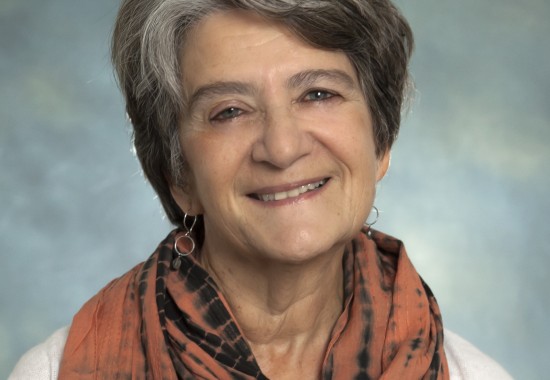
Dr. Myrna Schwartz
Co-Founder
Moss Rehabilitation
Research Institute
|
Episode Sixteen - Best Practices in Aphasia care: In Conversation with Dr. Myrna Schwartz
Have you ever asked yourself, “What do you mean I need a consent form? We are just presenting on a project we did with our community aphasia group.” Dr. Myrna Schwartz speaks with Dr. Janet Patterson about the important role of ethics and institutional review in clinical research activities in which community aphasia groups may wish to participate. It’s an important and often confusing topic that all people who are interested in either research or program evaluation should understand.
In this episode, you will:
- Hear Dr. Schwartz describe the human face of research and the importance of institutional review board activities and informed consent to clinical research happening in community aphasia groups;
- Learn how to differentiate inward focused research examining Quality Assurance and Quality Improvement of a community aphasia group from outward focused research designed to answer a clinical question;
- Learn strategies and techniques for your community aphasia group to develop an institutional review board or to partner with a university or hospital for clinical research activities.
Listen to the episode on iTunes
Download the show notes
|
|
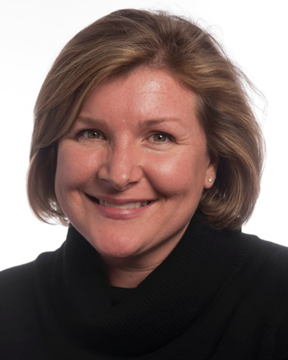
Dr. Elizabeth Hoover
Boston University
|
Episode Fifteen - Great Ideas In Aphasia Care Programming: A Conversation with Dr. Liz Hoover
Ellen Bernstein-Ellis of California State University, East Bay interviews Dr. Elizabeth Hoover, a Clinical Associate Professor of Speech, Language and Hearing Sciences and the Clinical Director of the Aphasia Resource Center at Boston University. They discuss Dr. Hoover’s work with aphasia groups at the Aphasia Resource Center at Boston University as well as the exciting research she’s undertaking.
In this episode, you will:
-
Learn how to involve IPP elements in your aphasia program to address the increase in sedentary behavior and the need for nutritional counseling post stroke;
-
Understand how to use the A-FROM to help develop and implement participation goals within an IPP framework;
-
Gain an example of how to target specific verbs within a daily conversation group;
-
Get an early glimpse into new research by Dr. Hoover and Dr. DeDe examining the impact of group size on outcomes for conversational group treatment.
Listen to the episode on iTunes
Download the show notes
|
|
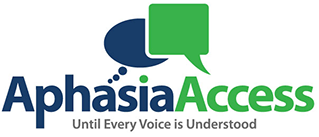
Dr. Roberta Elman
Aphasia Center of California
Dr. Aura Kagan
Aphasia Institute
Dr. Nina Simmons-Mackie
Southeastern Louisiana University
|
Episode Fourteen - LPAA Pioneers Discuss Core Values History & Tenets
In this episode, Guest Interviewer Dr. Liz Hoover brings together three pioneers of LPAA, Dr. Roberta Elman, Dr. Aura Kagan, and Dr. Nina Simmons-Mackie, to share their perspectives on some of the early roots of LPAA and to offer insights about each of its five tenets. Enjoy this lively exchange about LPAA core values.
A special thank you to Lyssa Rome, a new Cal State East Bay alumni, who is not only a new SLP and AA member, but who kindly put her previous job skills as a radio producer to work in helping with this episode.
In this episode, you will:
- Get the insider view of the history of the LPAA Statement of Values
- Listen to a description of the five core LPAA values and their importance to providing patient-centered care
- Better understand how personal factors and the environment play critical roles within the LPAA framework
- Hear advice for the new clinician about how to make a limited number of speech therapy sessions “count”
Listen to the episode on iTunes
Download the show notes
|
|
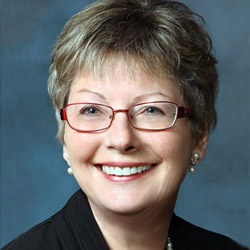
Dr. Nina Simmons-Mackie
Southeastern Louisiana University
|
Episode Thirteen - The State of Aphasia in North America with Dr. Nina Simmons Mackie
Dr. Katie Strong of Central Michigan University presents an episode on The State of Aphasia in North America. She interviews Dr. Nina Simmons-Mackie about Aphasia Access' recent report on the State of Aphasia.
Nina Simmons-Mackie Ph.D., BC-ANCDS is Professor and Scholar in Residence at Southeastern Louisiana University in Hammond, LA. She is past president of Aphasia Access and serves on the current Aphasia Access board. She has received the Honors of the American Speech-Language-Hearing Association, the Academy of Neurologic Communication Disorders & Sciences and the Louisiana Speech-Language-Hearing Association. She received an Outstanding Clinical Achievement Award from the American Speech, Language and Hearing Foundation. Dr. Simmons-Mackie has many years of clinical, academic and research experience in neurogenic communication disorders and has published numerous articles and chapters in the area of adult aphasia. Interests include aphasia, qualitative research, and social model philosophies.
In today’s episode, you will hear:
- The story that inspired the State of Aphasia in North America Report;
- A guided tour of the organization of the report;
- A few of Nina’s highlights from the report including the Impact of Social Isolation and Services for Aphasia.
Listen to the episode on iTunes
Download the show notes
|
|
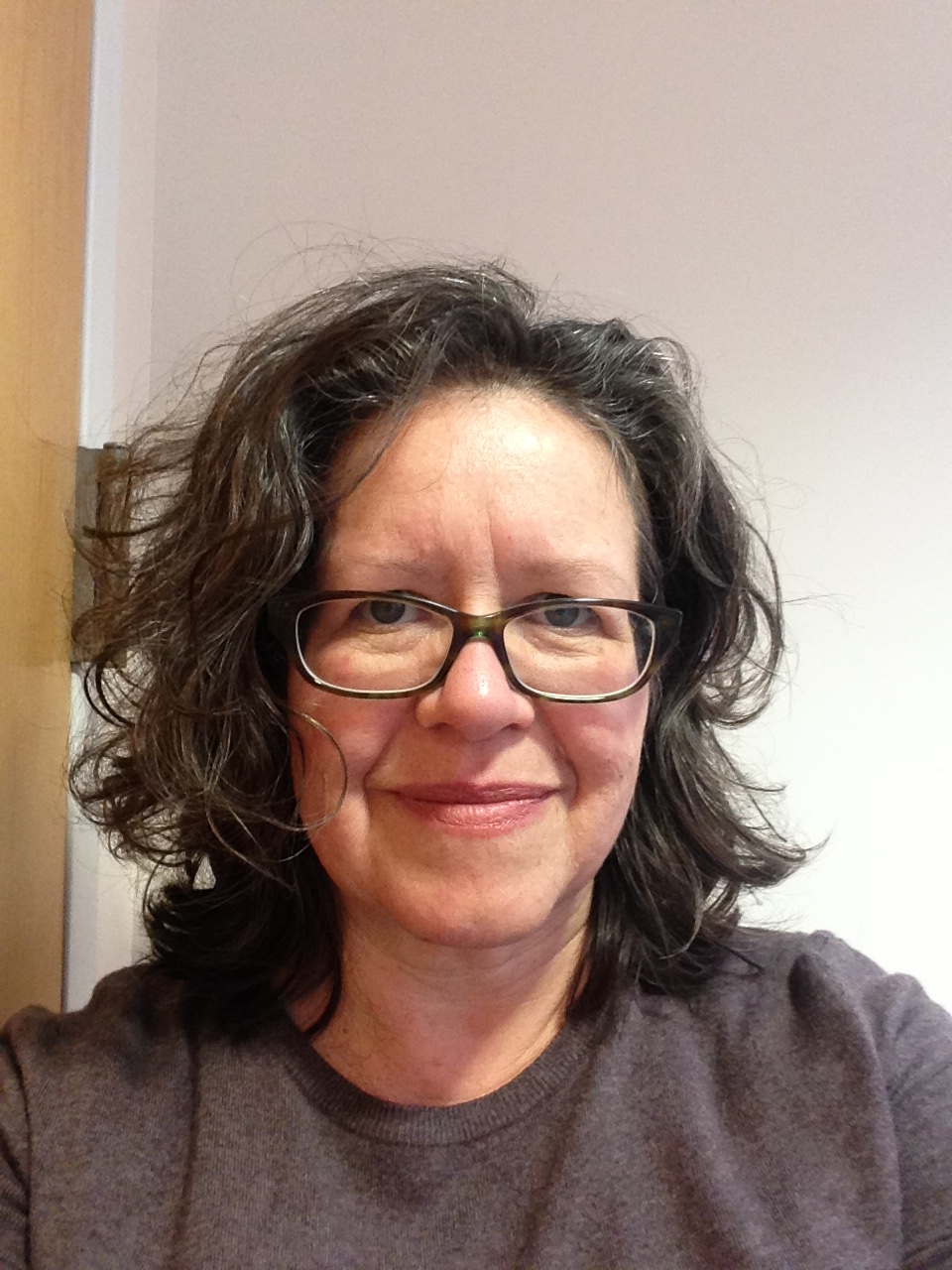
Francie Schwarz
City of Los Angeles,
Public Libraries
|
Episode Twelve - Best Business Practices in Aphasia Care with Francie Schwarz
Today, Janet Patterson will be speaking with Francie Schwarz about a unique partnership between library science and speech-language pathology. That partnership led to the first book group for persons with aphasia that is hosted at a public library.
In today’s episode, you will:
- Hear how creating a partnership with your local public library is a novel and unique way to embody the principles of LPAA by bringing a book group for people with aphasia to the community;
- Learn tips on developing a relationship with the adult programming librarian in order to navigate library regulations, locate resources to obtain books, and manage lending practices;
- Learn strategies to work with libraries to help them demonstrate their unique contribution to their communities and serve their mission of inviting residents into the library through hosting a book group for people with aphasia.
Listen to the episode on iTunes
Download the show notes
|
|

Dr. Esther Kim
University of Alberta
|
Episode Eleven - Engaging Your Community. A Conversation with Dr. Esther Kim.
Dr. Nidhi Mahendra (San Jose State University) interviews Dr. Esther Kim. Dr. Kim is a speech-language pathologist, aphasia researcher, and Associate Professor in the department of Communication Sciences and Disorders at the University of Alberta in Canada. In addition to her research program examining treatments for aphasia and acquired reading disorders, Esther is the co-founder of the Alberta Aphasia Camp and has an interest in examining outcomes related to aphasia camp participation and LPAA programming in general. Beyond this, she also teaches an aphasia class and supervises graduate student clinicians.
In today’s episode, you will learn about:
- The importance of utilizing multiple avenues for high impact when raising awareness about aphasia;
- The critical importance of recreational and therapeutic activities for people with aphasia with a special emphasis on offering these activities in a supportive communication environment;
- Program design with an eye to bringing people with aphasia together while also providing a rich training environment for speech pathology students.
Listen to the episode on iTunes
Download the show notes
|
|
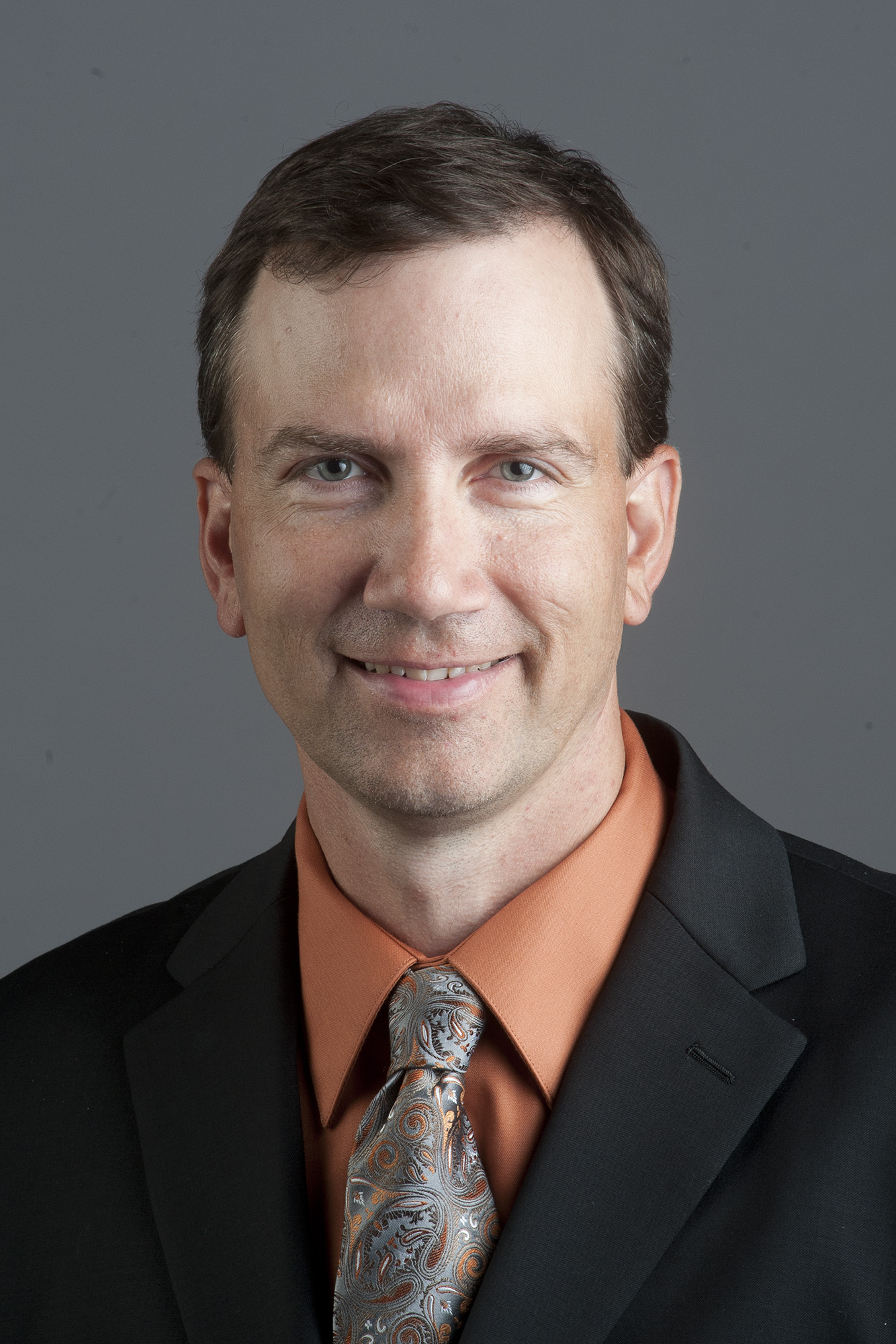
Dr. Jerry Hoepner
University of Wisconsin - Eau Claire
|
Episode Ten - Great Ideas in Aphasia Care Programming: An Interview with Dr. Jerry Hoepner
Listen to this episode as Ellen Bernstein-Ellis (California State University, East Bay) speaks with Dr. Jerry Hoepner. about programming for the Chippewa Valley Aphasia Camp..
Dr. Hoepner is an associate professor at the University of Wisconsin-Eau Claire. He teaches numerous courses including neurogenic disorders, neuroanatomy, and counseling. Jerry's teaching research focuses on non-course-based learning, pedagogy, and training CSD students as educators. His clinical research includes outcomes of the Chippewa Valley Aphasia Camp, social networking applications, videos self-modeling, interventions, and communication partner training.
In this episode, you will:
- Learn about how the Chippewa Valley Aphasia Camp got its start 14 years ago and how its mission to increase social interaction and communicative success guides its programming;
- Hear more about how the concepts of therapeutic landscapes and environmental press dovetail with the Life Participation Approach to Aphasia (LPAA);
- Learn how the student volunteer experience is guided at camp from the initial training to the daily de-briefing.
- Learn how Snapchat - a photo-based social media app - can increase social interactions among campers.
Listen to the episode on iTunes
Download the show notes
|
|
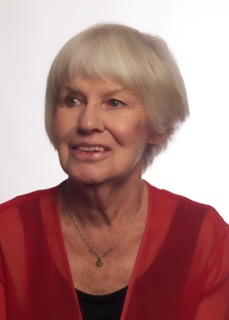
Dr. Audrey Holland
The University of Arizona
|
Episode Nine - Insight and "Aha' Moments in Aphasia Care. An Interview with Dr. Audrey Holland
In this episode, Dr. Katie Strong (Central Michigan University) speaks with Dr. Audrey Holland who shares her insights from the trenches, recalling her most significant “Aha!” moments.
Dr. Holland is an internationally-renowned expert in the area of aphasia assessment and intervention. She is the Regents’ Professor Emeriti of Speech, Language, and Hearing Sciences at The University of Arizona and she continues to consult and write in the area of aphasia during her retirement. She's the author of several assessments and three books, numerous book chapters, and over 150 peer-reviewed journal articles.
In this episode, you will:
- Hear the story of how a plane trip with business magazine article led to Dr. Holland’s ‘aha moment’ of thinking about coaching in communication disorders; learn the difference between coaching and counseling; and how to use elements of positive psychology in LPAA practice
- Learn the value of talking about ‘us’: Tips on building a relationship-centered experience with your client
- Be inspired to make an impact on your community one starfish at a time
- Learn the power of post-traumatic growth
Listen to the episode on iTunes
Download the show notes
|
|
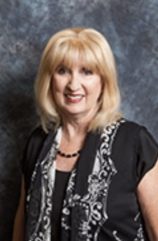
Dr. Candace Vickers
California Baptist University
|
Episode Eight - Best Business Practices in Aphasia Care: In Conversation with Candace Vickers
Dr. Janet Patterson (VA Northern California Health Care System) interviews Dr. Candace Vickers. Dr. Vickers is with the College of Allied Health at California Baptist University in Riverside, California. Formerly, she was part of the outpatient neuro rehabilitation team at the St. Jude Medical Center where she was the creator of the communication recovery groups program.
In this episode, you will:
- Learn two benefits to providing a person with aphasia with the opportunity to share a conversation with a non-obligated communication partner.
- Learn about the value of supporting opportunities for both exercise and conversation with people with aphasia.
- Hear Dr. Vicker's describe how being part of an aphasia group can decrease the risk for social isolation.
Listen to the episode on iTunes
Download the show notes
|
|
Dr. Darla Hagge
California State University
|
Episode Seven - Great Ideas in Aphasia Care Programming: In conversation with Darla Hagge
Today, Ellen Bernstein-Ellis (California State University - East Bay) speaks with Dr. Darla Hagge. Dr. Hagge is an assistant professor at California State University - Sacramento and a speech language pathologist at St. Jude Medical Center. She's the founder of the NeuroService Alliance which is a collection of life participation approach programs for adults with acquired communications disorders. She's the co-founder of the California Interprofessional Education Research Academy and the Sac State's CHHS Interpersonal Education Center of Innovative Teaching and Learning. In today’s episode you will:
- Learn the key elements that define professional education;
- Understand the four domains that need to be part of any professional education learning experience
- Get tips on how to start a professional education or an interprofessional practice collaboration in both university and medical settings
- Hear tips for introducing colleagues to communication partner training in a professional practice setting.
Listen to the episode on iTunes
Download the show notes
|
|
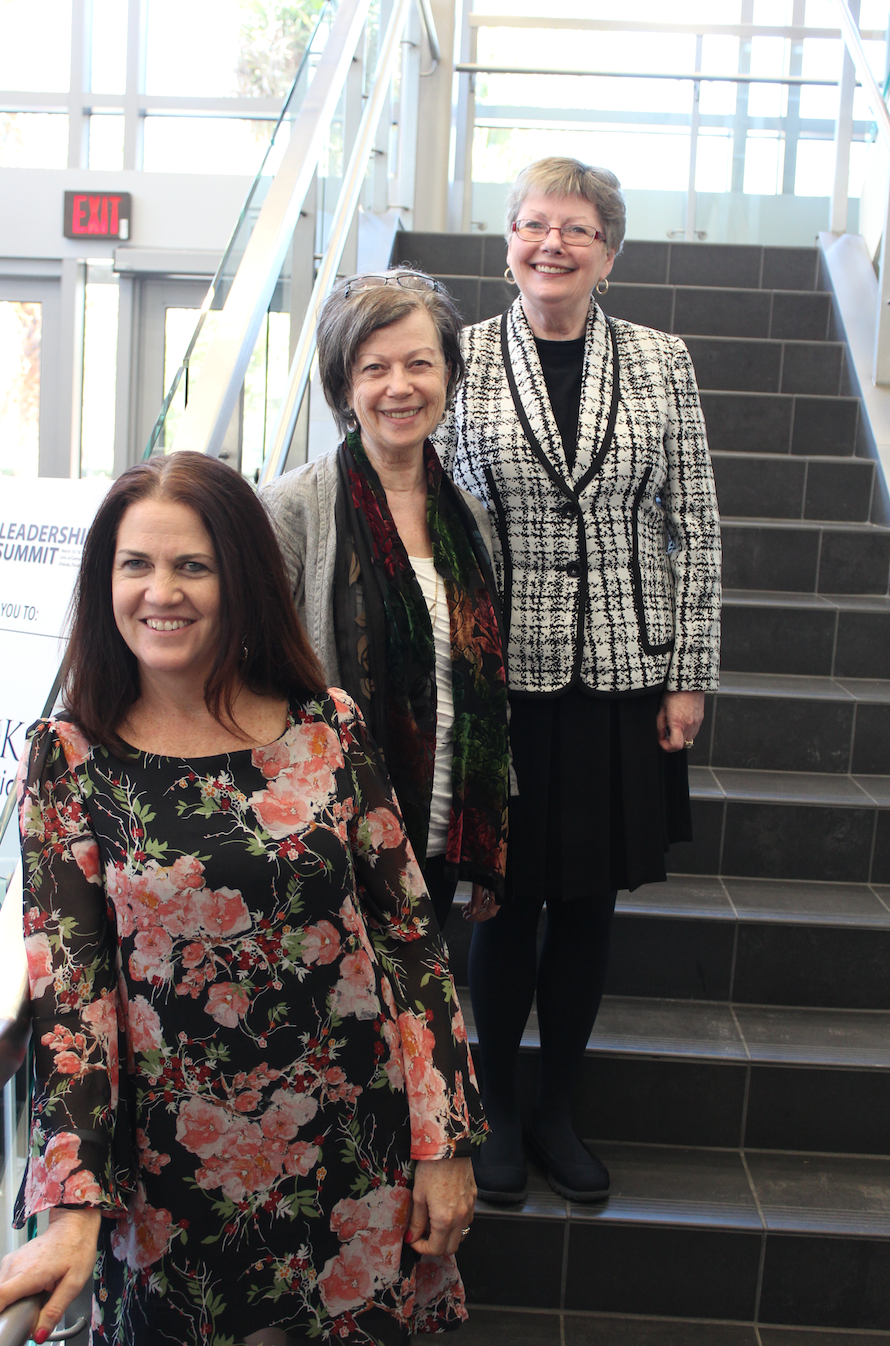
|
Bonus Podcast - Leadership Summit Reflections
Dr. Katie Strong hosts this episode from 2017 Leadership Summit in Orlando. Leadership summit attendees from across the U.S. and Canada share their insights from the 2017 Leadership Summit.
- Share your best conference take away so far!
- Tell us about your favorite LPAA activity.
- How has the LPAA model influenced the aphasia care you provide?
- Share your "aha" moment as a LPAA practitioner.
A special thanks to each of the attendees who shared their experiences. Sandy Glista, Western Michigan University; Tom Sather, University of Wisconsin Eau Claire; Lyssa Rome graduate student from Cal State East Bay; Jerry Hoepner, University of Wisconsin Eau Claire; Becky Khayum, Memory Care Corporation; Wendy Duke, Columbia Speech and Language Center, Vancouver BC; Esther Kim, University of Alberta; Tyson Harmon, graduate student at University of North Carolina; Rieppe Hendrick, Triangle Aphasia Project Unlimited; and Cheryl Paul, University of South Florida.
Listen to the episode on iTunes
|
|
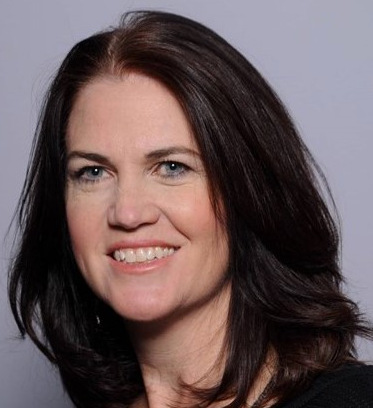
Maura English Silverman
Triangle Aphasia Project Unlimited
|
Episode Six - Engaging Your Community
Maura English Silverman, MS, CCC/SLP is the Founder and Executive Director of the Triangle Aphasia Project (TAP), Unlimited in North Carolina. This interview includes:
- Identify practical and strategic methods for increasing awareness of aphasia programming and supports within their own communities.
- Describe methods to engage and mobilize individuals with aphasia, their families and partners in service within the community to widen the service provision options available.
- Identify stakeholders to your aphasia programming and determine how their objectives and your LPAA provision goals can be aligned for improved services.
Listen to the episode on iTunes
Download the show notes
|
|
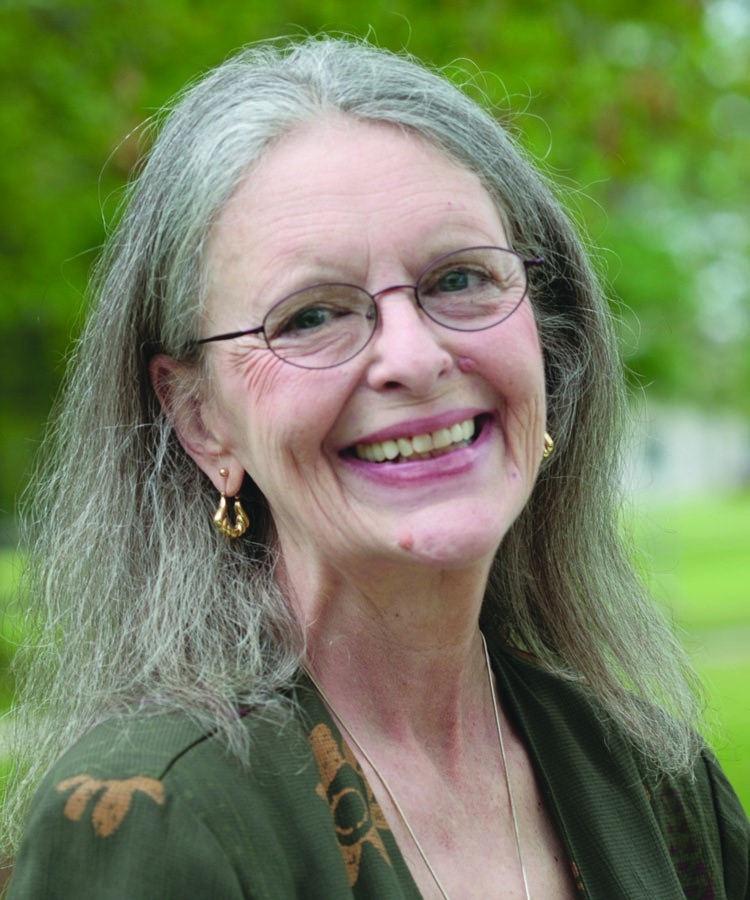
Dr. Barbara Shadden
University of Arkansas
|
Episode Five - Insights and “Aha!” Moments About Aphasia Care
Dr. Katie Strong interviews Dr. Barbara Shadden, Professor Emeritus in Communication Disorders and Co-Director of the Office for Studies on Aging at the University of Arkansas. This interview includes:
- How to define identity and understand the impact it has on aphasia
- 4 Tips that support the emotional and physical health of client caregivers
- 3 Ways to help make your aphasia therapy more identity friendly
Listen to the episode on iTunes
Download the show notes
|
|
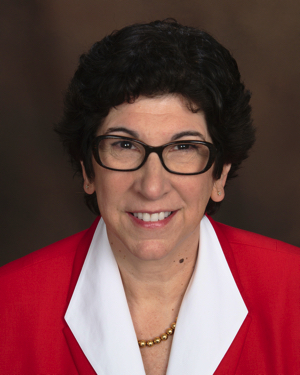
Dr. Lynn Maher
University of Houston
|
Episode Four - Best Business Practices in Aphasia Care
Dr. Janet Patterson interviews Dr. Lynn Maher, founding member of the Houston Aphasia Recovery Center. This interview includes:
- How to find the best fit and engage people who want to be a part of your community aphasia group
- How to balance the desire to build programs for people with aphasia with good stewardship and being fiscally responsible
- How Founder's Syndrome and Magical Thinking can both propel and stall your community aphasia program
Listen to the episode on iTunes
Download the show notes
|
|
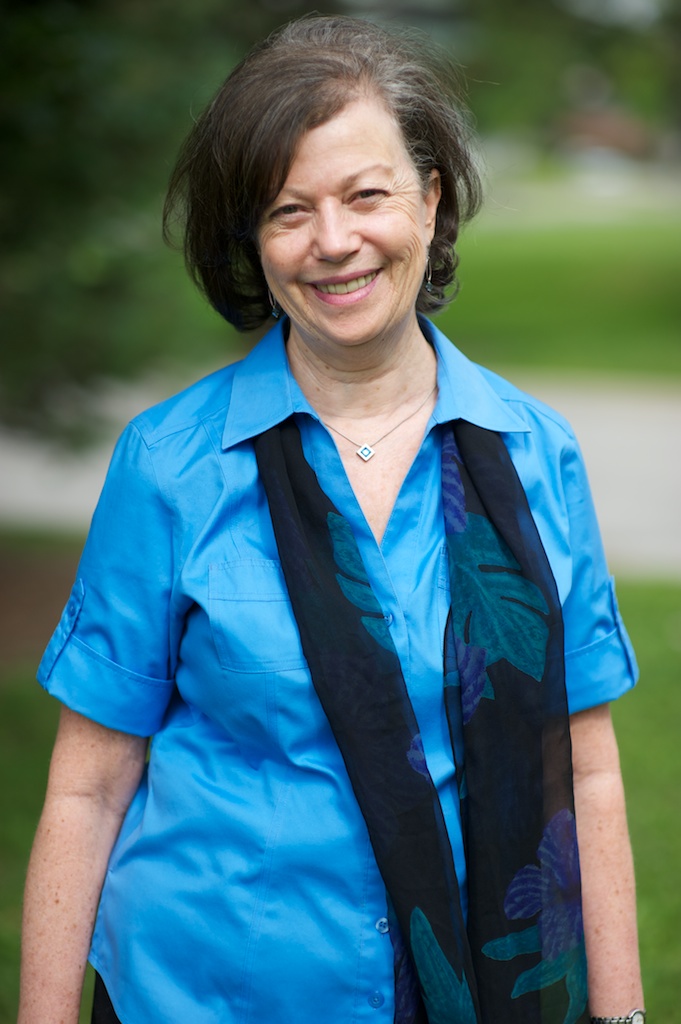
Dr. Aura Kagan
Aphasia Institute
|
Episode Three - Great Ideas In Aphasia Care Programming
Ellen Bernstein-Ellis interviews Dr. Aura Kagan, Executive Director of The Aphasia Institute. This interview includes:
- The value of a more impact-focused definition of aphasia
- How a conversational interactions approach guides programming
- The value of volunteers in your aphasia centers
- The importance of providing an introductory experience for people with aphasia and their families
Listen to the episode on iTunes
Download the show notes
|
|
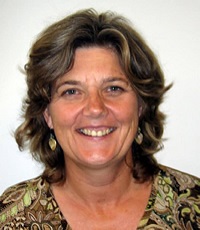
Dr. Jackie Hinckley
Voices of Hope for Aphasia
|
Episode Two - Engaging Your Community.
Dr. Nidhi Mahendra interviews Dr. Jackie Hinckley, Executive Director of Voices of Hope for Aphasia. This interview includes:
- Best practices for raising awareness of any condition.
- Top marketing tools for promoting referrals and support of your aphasia community.
- Key trends to understand in order to generate a response to your aphasia services.
Listen to the episode on iTunes
Download the show notes
|
|
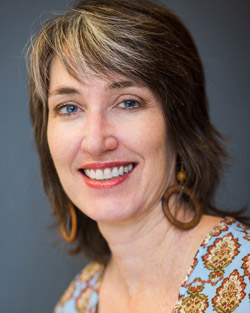
Kathryn Shelley
Aphasia Center of West Texas
Aphasia Access President
(2016-17)
|
Episode One - What Can Aphasia Access Do For You?
Dr. Katie Strong speaks with Kathryn Shelley, current President of Aphasia Access. Kathryn shares her own journey in aphasia care and some "a-ha!" realizations behind the creation of Aphasia Access.
You'll learn:
- Three W's that start and sustain an aphasia program
- Four ways that Aphasia Access differs from other aphasia organizations
- Five Aphasia Access avenues designed to save you time
- One thing you can do today to improve your network
Listen to the episode on iTunes
Download the show notes
|
Return to our training landing page and see all of Aphasia Access' educational opportunities.
|

